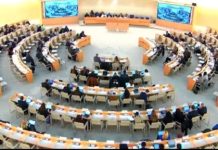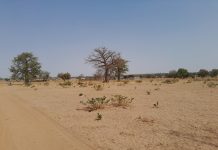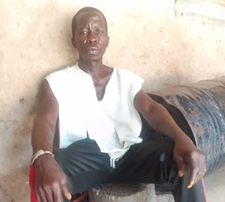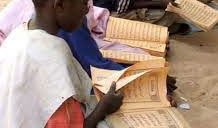By Nelson Manneh
Refugees from border villages of Cassamance are still living in Foni as the conflict continues to displace residents of the southern region of Senegal.
This reporter yesterday, Monday, June 12 visited some villages around the border and found out that there are still refugees who fled from Casamance to the Gambia.
Villages like Giffanga and Jakin, among other villages still accommodate refugees from Casamance.
The confrontation continues to cause a lot of negative impact on both the Gambia and Casamance.
Many people from Casamance have now fled to border villages in Foni and had since settled there with their families. In an interview with Foroyaa, refugees from Casamance expressed pessimism over the change of status, saying “we are not thinking of going back to our villages during this ongoing crisis”.
One Ebrima Jammeh, a refugee from Casamance now hosted at Giffanga Village, expressed his fear of returning to their village.
Jammeh informed this medium that he left Casamance a few months ago due to the war and sought refuge with his family in Giffanga.
He said Casamance is not safe, adding: “It was not easy with us in Casamance and we have nowhere to head to apart from coming to Foni.”
According to Jammeh, he left Casamance with nothing apart from his wife and kids because they feared armed personnel in the area, adding their problem was compounded by sporadic gun fire in their village.
“As we left, we ran for a few metres and laid on the ground, this was how we continued to struggle until we entered Giffanga. Some of our colleagues headed to Jakin because they didn’t have relatives in Giffanga,” he said.
Mr Jammeh said they left their cattle, other domestic animals, food stuff and clothes in their houses and sought sanctuary in their host villages.
He said when they arrived in Giffanga, they were welcomed by the villagers and they later reunited with their relatives within Giffanga, where they are still staying.
“The families that are hosting us are really kind to us, they share the little they have with us, but livelihood is really challenging. Feeding is a problem; we barely eat three times a day. Some of us eat only once that is during lunch time, and then when dinner comes we give it to our children because it is not always enough,” he said.
Mr Jammeh emotionally lamented that he sometimes leaves for the bush, to avoid being asked for fish money as he doesn’t have anything to give to his wife to cook for the family.
“I usually go out as if I am going to do some work in the bush because it is very embarrassing for a man to marry a wife, have children and cannot provide anything for them,” he said.
Whilst he was in Casamance, Jammeh added, he had a garden behind his house and a herd of cattle with other domestic animals, where his family depended for feeding.
“As of now, I go out every day to search for contracts in order to take care of my family. When it comes to health, we always pray that we don’t get sick because we don’t have money to take care of ourselves, talk less of paying medical bills,” he said.
He said since he migrated to Foni with his family, he never visited any health facility. “I am now in my 40s, but have never seen this kind of war since when I was born. We ran the whole night from Casamance to Giffanga.”
“We are farmers, but we are not thinking of going to our farmlands for farming because we don’t have anything to eat let alone seedlings for farming,” he noted.
Mr Modou Gibba, Alkalo of Giffanga, said since the incident started, Giffanga and other villages along the borders are hosting refugees, but have not received any assistance in terms of feeding, clothing and even health care services.
“These refugees have spent more than three months with us here and they are not in any way thinking of going back to Casamance now because the military raid is still ongoing. It is the responsibility of the government to take care of refugees, but in this case, it is the opposite,” he said.
The Alkalo of Giffanga said they had a poor harvest, coupled with inadequate economic activity apart from farming, fetching firewood and burning of charcoal, and that cannot provide much support to refugees.
“We are deprived of all these activities. How can we survive, who will provide for us?” he questioned.
He said life in Foni, especially at the border, is very hard and is getting worse every day.
Alkalo Gibba called on the government to visit his village and other villages at the border in order to see how they are struggling to survive.





















